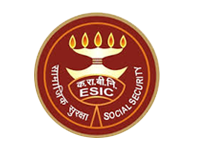Training Program
All training schedule are listed here:
|
Duration : 05/03/2024 to 07/03/2024 To empower participants with the knowledge, techniques, and confidence required to create and deliver impactful presentations. |
|
Duration : 11/03/2024 to 15/03/2024 The Course aims at developing the capacities of young research scholars in the area of qualitative research. It provides an opportunity to go through a rigorous and interactive exercise on understanding various qualitative methods and tools, with special focus on labour research. |
|
Duration : 15/03/2024 |
|
Duration : 18/03/2024 to 22/03/2024 To develop an understanding of social protection and livelihood security for north eastern states. |
|
Duration : 18/03/2024 to 20/03/2024 The programme aims at empowering Rural Organizers from Trade Unions |
|
Duration : 18/03/2024 to 20/03/2024 The programme aims at equipping the participants with the context of labour legislation and recent Labour jurisprudence. |
|
Duration : 19/03/2024 to 21/03/2024 The programme aims to sensitize the participants about the changing nature of employment, the inequalities arising out of these changes and the need for social protection. It would enable participants to understand the international standards and existing legal instruments as well as some global best practices in order to promote workers’ rights, based on a model of social justice. |
|
Duration : 21/03/2024 to 22/03/2024 To provide participants with a comprehensive understanding of training evaluation methodologies, techniques, and best practices. |
|
Duration : 26/03/2024 to 28/03/2024 The programme aims at strengthening the understanding of preventing sexual harassment at the workplace. |
|
Duration : 26/03/2024 to 28/03/2024 To enhance the participants understanding and capacity to organize the workers for their effective participation in Development Process. |
Pages
May, 2018
|
Duration : 07/05/2018 to 11/05/2018 To develop an understanding of social protection and livelihood security for informal sector workers. |
|
Duration : 07/05/2018 to 11/05/2018 The programme aims at enhancing enforcement competence and skills of Enforcement Officers. |
|
Duration : 14/05/2018 to 19/05/2018 The programme aims at empowering of trade union leaders by enhancing their knowledge skill base |
|
Duration : 14/05/2018 to 25/05/2018 The course aims at acquainting the participants with the emerging labour issues for research in an interdisciplinary framework, strengthening their knowledge with various methods used in labour research, thereby enabling them to contribute further in the field of labour research. |
|
Duration : 14/05/2018 to 18/05/2018 This programme aims at enhancing the capacities of the stakeholders in |
|
Duration : 21/05/2018 to 25/05/2018 The aim of the programme is to enhance leadership skills of trade union activists |
|
Duration : 21/05/2018 to 25/05/2018 The programme aims at empowering the various Stake-holders in the Building and |
April, 2018
|
Duration : 09/04/2018 to 13/04/2018 The programme aims at empowering Rural Organizers from Central Trade Unions |
|
Duration : 09/04/2018 to 13/04/2018 The programme aims at empowering Rural women organizers from Central Trade Unions. |
|
Duration : 09/04/2018 to 13/04/2018 The programme aims at equipping the participants with the context of labour legislation and recent labour jurisprudence. |


























